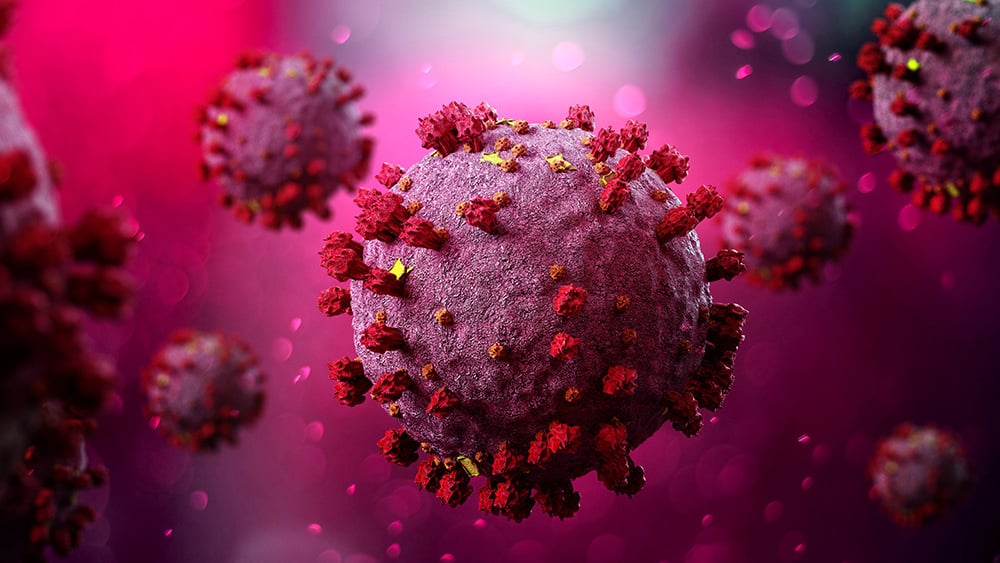(Natural News)
The Centers for Disease Control and Prevention (CDC) declared that the two new variants of the Wuhan coronavirus (COVID-19) discovered in California in the summer and fall of 2020 to be “variants of concern.”
The two new strains of the coronavirus are known as B.1.427 and B.1.429. The former was first discovered around July, while the latter was identified in September. Both emerged in Southern California.
Together, they accounted for more than half of all coronavirus cases in the state by Feb. 2021, according to estimates based on viral genome sequencing studies conducted by the University of California, San Francisco (UCSF).
The researchers who made this estimation believe that B.1.427 and B.1.429 could be responsible for around 90 percent of coronavirus cases in California by the end of March.
B.1.427 has been detected in all states within the United States except for West Virginia, Vermont, South Dakota and Alaska. B.1.429, on the other hand, has been detected in every single state except South Dakota. (Related: New coronavirus cases in Florida down 75% since January despite high prevalence of “more contagious” UK variant.)
Genome studies suggest that, as of Mar. 9, B.1.427 and B.1.429 accounted for around nine percent of all coronavirus samples in the U.S. Most of the cases of these variants are also centered around California, Nevada and Arizona.
Mutations in two California strains particularly concerning to health officials
According to the CDC, a “variant of concern” is a coronavirus strain “for which there is evidence of an increase in transmissibility, more severe disease – increased hospitalizations or deaths – a significant reduction in neutralization by antibodies generated during previous infection or vaccination, reduced effectiveness of treatments or vaccines, or diagnostic detection failures.”
It is one category below variants “of high consequence,” which are mutations that have substantial evidence showing that regular preventative measures or medical treatments have “significantly reduced effectiveness” relative to the original strain or other notable coronavirus variants.
There are many “variants of concern,” like the variants originating from the United Kingdom, Japan, Brazil and South Africa. There are no “variants of high consequence” present in the country.
The California variants are also of less concern to scientists compared to the variants that first emerged in the U.K. and South Africa, which studies show are around 50 percent more transmissible than the original strain. The California variants are only around 20 percent more transmissible.
The classification of the two strains as “variants of concern” comes as hospitalizations and deaths from the coronavirus in California are on a significant downswing.
Both coronavirus strains have caused concern among health officials and scientists as they are much more capable of evading mainstream COVID-19 therapies. Both are also slightly more resistant to the antibodies produced a human body may produce if it was infected by the original strain of the coronavirus.
The scientists who are studying these variants say the coronavirus is doing what it can to survive. This means it will regularly change by mutating. Whereas some mutations will “emerge and disappear,” others will “emerge and persist.”
Health experts were quick to point out that the increased concern regarding the new mutations did not mean that mainstream preventative measures such as washing hands, observing social distancing and wearing face masks are no longer valid. But these same experts believed more research needs to be done to figure out how these new mutations decrease the effectiveness of common preventative measures.
Previous infection does not guarantee immunity from the new variants
Some scientists are also warning that the antibodies developed by those who’ve already caught COVID-19 may not be effective against the new variants.
Dr. Charles Chiu, an infectious diseases expert at UCSF, has been leading studies regarding B.1.427 and B.1.429. One study found a 6.7 percent decrease in antibodies in the blood of seven out of eight study participants who received treatment with either convalescent plasma or monoclonal antibodies.
According to Chiu, this means there’s evidence of what scientists call “antibody escape.”
“If you were infected before, you will not necessarily be protected against reinfection,” said Chiu.
Chiu and other scientists are concerned that this sharp drop in antibodies could make vaccines and other treatments less effective, but right now it is difficult to tell.
Another study found a two-fold decrease in neutralizing antibody activity against the California variants.
“I don’t think it’s going to lead to a vaccine breakthrough, where the vaccine doesn’t work,” said Chiu of the latter study. “But this study gives us some initial idea of the infectivity and the potential resistance to neutralizing antibodies for a variant that, up until now, has not been studied. This is key information that we need.”
Learn more about the many different variants of the coronavirus circulating in the United States and in other parts of the globe by reading the latest articles at Pandemic.news.
Sources include:






